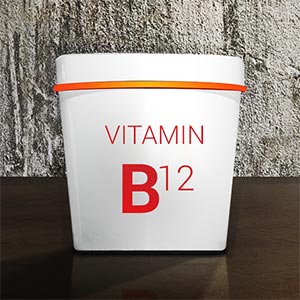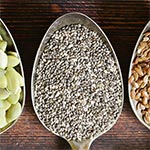Yes, It is not easy to get all the dietary nutrients you and your baby require, even though you eat a wide variety of food, including dairy products, meat, fruits, vegetables, grains, and legumes.
Taking Prenatal Vitamins is a good idea during pregnancy to help cover any nutritional gaps in the mother’s diet. They play the kind of a back-up in your diet to maintain your own health during pregnancy. Most moms-to-be do not get enough vitamins and minerals from their diet to meet their body’s increased demand during pregnancy.
The good news is a woman can benefit from taking Prenatal Vitamins and minerals supplements as soon as she conceives. Supplementation is even more crucial for women with dietary restrictions, pregnancy complications and health issues, this includes women who are:
- Suffering from chronic diseases
- Have underlying eating disorders
- Have had a gastric bypass surgery
- Are vegetarians
- Have blood disorders
As a rule of thumb, most Prenatal Vitamins may contain various vitamins and minerals. Nonetheless, they must have at least this four key elements: Folic Acid (Vitamin B9), Iron, Calcium, and Iodine which are essentially important Prenatal Vitamins during pregnancy. The benefits of the Prenatal Vitamins are as follows.
Benefits of Prenatal Vitamins:
- Folic Acid
This makes one of the three vitamins crucial during pregnancy; it is a member of Vitamin B9 it helps reduce childbirth defects that occur during early pregnancy. Such as neural defects like Spina Bifida and Anencephaly by up to 70 percent. It is also known to reduce other defects, such as Cleft palate, Cleft lip and other types of heart defects. - Iron
Supports the baby’s growth and development, prevents anemia, a condition in which blood has a low number of healthy Red blood cells. Iron helps in the transportation of Oxygen in the woman’s body and the fetus, it reduces the low birth weight in babies.
It is evident Prenatal Vitamins benefits not only the woman but the fetus as well. Daily recommended Intake is 27 mg per day. - Calcium
This makes one of the key minerals in a prenatal vitamin supplement and is it is important in building baby’s bones and teeth and to replace calcium from mom’s bones. However, the pregnant woman may not get enough calcium from their diet prenatal vitamin supplements supply of calcium needed at this stage.
Prenatal vitamin supplements may often contain other vitamins and minerals these could include - Vitamin A
This helps in brain and eye development and respiratory development. - Vitamin C
Helps our bodies absorb Iron and reduce stress. - Vitamin D
Helps a woman’s bodies utilize Calcium and phosphorous, helps strengthen the teeth and bones of the body.
Prenatal Vitamins Side Effects
- Overdosing Risk
Most first-time pregnant women are excited and tend to use more than one multivitamin type, combining them with a view of getting more nutrients. But they run the risk of overdosing on a particular type of nutrient.
Prenatal vitamin supplements contain higher doses of nutrients in concentrated forms, which tend to be dangerous without medical supervision from a medical doctor. It is important to note that it is possible to jeopardize your baby’s and your own health by taking an overdose of synthetic Prenatal Vitamins. - Nutritional Inferiority
Most Prenatal Vitamins are synthetic, that is processed in a Laboratory with vitamin isolates. They are nutritionally inferior to those natural vitamins derived from natural foods such as fruits, vegetables or dairy products.
Taking excessively large amounts of vitamin E have been associated with congenital birth defects in babies and damage to DNA to the liver. - Indigestion and Constipation
The presence of Iron in the prenatal vitamin mix causes constipation, because of higher levels of Iron. Carefully choose brands with less amount of Iron in them. Selecting your diet carefully may also help reduce the effects of constipation and indigestion associated with Iron. - Nausea
Most Prenatal Vitamins contain Folate which is high in Iron; this may cause the feeling of nausea in pregnant women using the product. This effect may be reduced by drinking a lot of water or using the product at night when going to bed. - Risk of under dosing on Calcium
Use of prenatal vitamin supplement may lead to Calcium deficiency since prenatal vitamin supplements do not contain enough Calcium, It only provides between 200 to 300 mg, yet the pregnant woman needs 1,000 mg daily. If you have to rely on Prenatal Vitamins you might not get enough. Yet, Calcium is vital in pregnancy.
Final Thoughts
Most Prenatal Vitamins are hyped to be giving the baby a kick start in life and with a good reason. Some clinical studies have suggested a link between Prenatal Vitamins containing Folic acid before and after the first 3 months of pregnancy with a reduction in structural birth defects, including those affecting the neural tube, cleft palate and limbs.
Depending too much on Prenatal Vitamin Supplements can give you a false sense of security about how well you are eating. Most Prenatal Vitamin Supplements do not promise a healthy child, but they help in filling the small gaps in your diet. Caution must be taken before using Prenatal Vitamins; a medical doctor may be consulted for advice.







